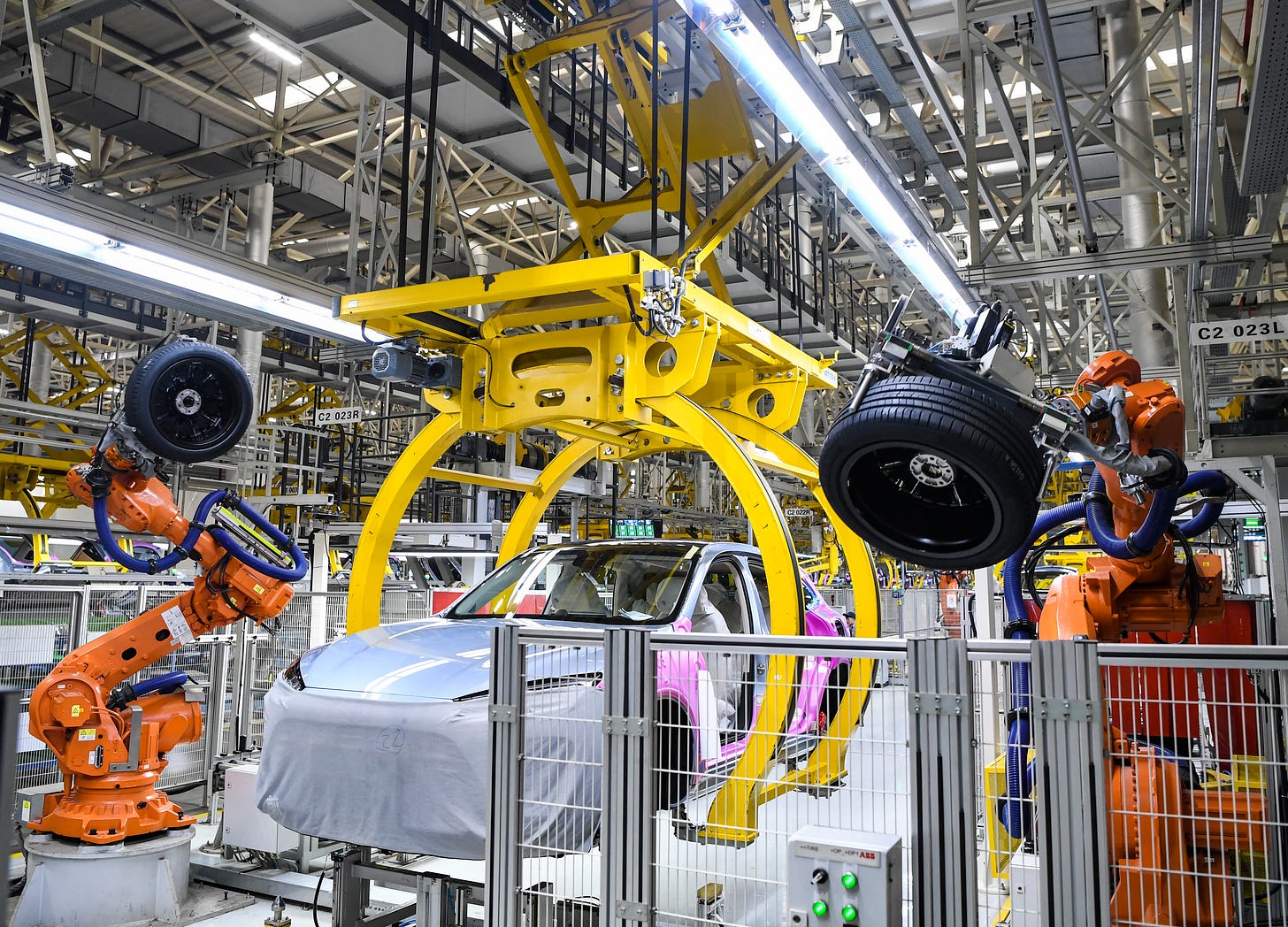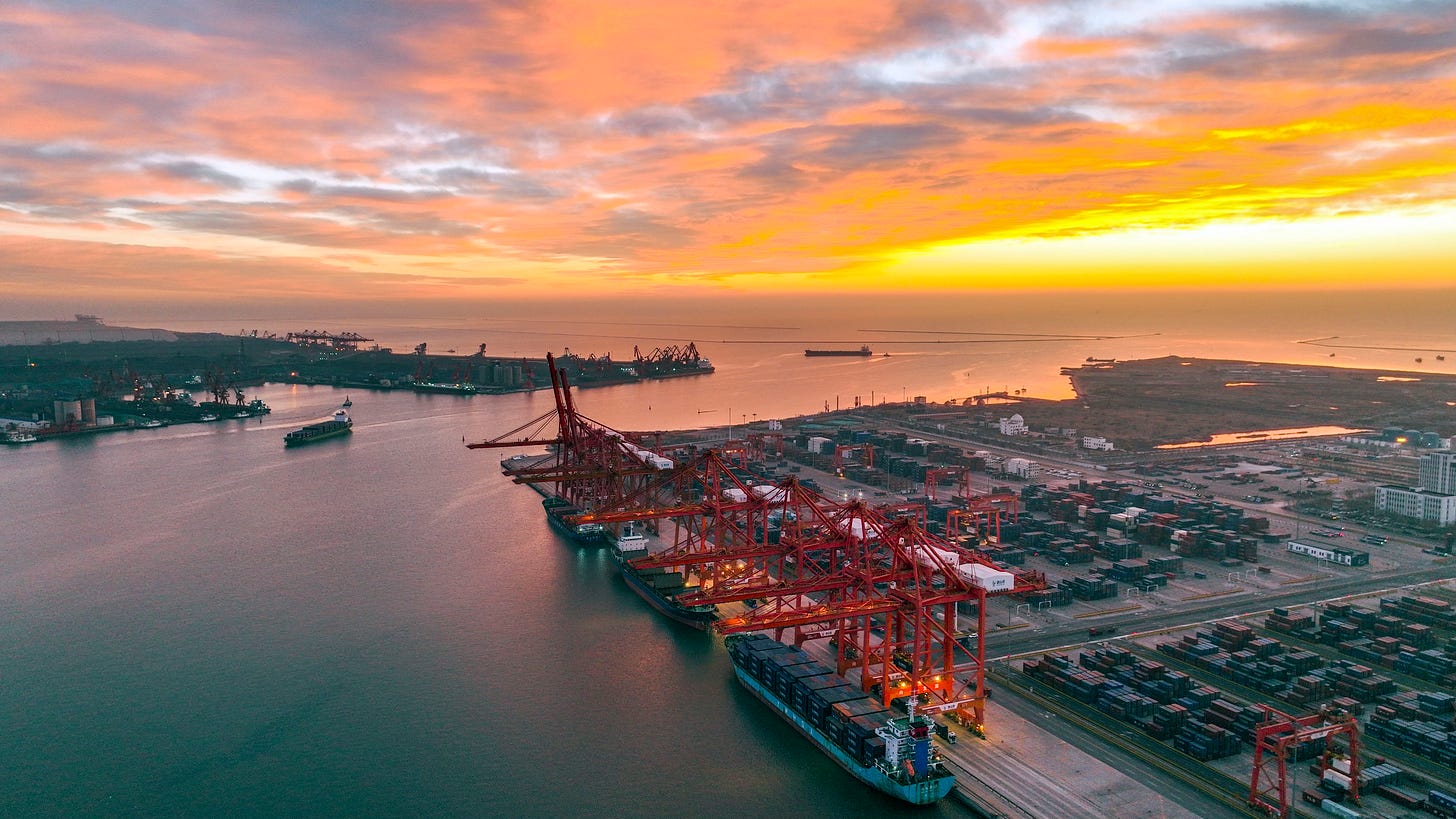Understanding key measures in China's economic plan for 2025
Why should China change its macro policy tone? How to boost consumption? How to tap investment potential to increase domestic demand?
After China's tone-setting Central Economic Work Conference (CEWC) last week, the 2025 roadmap of the world's second-largest economy has attracted global attention. On Monday, China's state media Xinhua News Agency published a story quoting an official from the Office of the Central Committee for Financial and Economic Affairs to elaborate on specific policy measures the country will take next year. This article selects excerpts from the senior official's analysis to provide more information on the CEWC's arrangements and how will they affect China's economy.
Why should China change its macro policy tone?
CEWC readout: The country should adopt a more proactive fiscal policy. It should set a higher deficit-to-GDP ratio and ensure that its fiscal policy is continuously forceful and more impactful.
Official: Next year, China will implement a more proactive fiscal policy for the first time, and adopt a moderately loose monetary policy after having a prudent monetary policy for 14 consecutive years.
The major shift in the tone of macro regulation reflects concerns that the adverse effects of changes in the external environment may deepen, while the domestic economy continues to face challenges.
It is crucial to confront these challenges head-on and take proactive actions to ensure good economic performance in the coming year.
How to boost consumption?
CEWC readout: Efforts should be made to vigorously boost consumption, improve investment efficiency, and expand domestic demand on all fronts. A special campaign dedicated to stimulating consumption should be implemented, and efforts should be made to increase the incomes, alleviate the burdens of low- and middle-income groups, and increase the ability, willingness and level of consumption.
Official: In 2025, measures such as increasing fiscal support for consumer spending and enhancing social security will be implemented to ensure stable growth in residents' incomes, while expanding domestic demand is a strategic move, with boosting consumption being the top priority.
Efforts will be intensified in promoting large-scale equipment upgrades and trade-ins for consumer goods next year, with more funds allocated, a broader range of consumer goods included in the support scope, and improvements made to the subsidy distribution process.
Next year, funds raised through ultra-long special treasury bonds to support the promotion of large-scale equipment upgrades and trade-ins for consumer goods will increase substantially compared to 2024. The implementation mechanisms of these policies will be further optimized, with enhanced monitoring and evaluation to improve the effectiveness of fund utilization.
Various market entities should be encouraged to offer diversified services, focusing on meeting residents' consumption needs in areas such as healthcare, elderly care, childcare, and domestic services.
How to tap investment potential to increase domestic demand?
CEWC readout: Investment from the central government budget should be appropriately increased. Work should also be done to strengthen fiscal and financial coordination to enable government investment to effectively drive nongovernmental investment.
Official: For infrastructure investment, stronger support will be provided to implement major national strategies and build security capacity in key areas.
Efforts will focus on promoting integrated urban-rural development, enhancing regional coordination, and advancing high-quality population growth. Measures will include increasing allocations of ultra-long special treasury bonds, optimizing fund allocation, improving investment mechanisms, and enhancing investment efficiency.
China will advance urban renewal projects and the reconstruction of old, dilapidated housing while intensifying efforts to address gaps in education, healthcare and elderly care services. Investment in technological innovation, industrial upgrades and green transformation will be also increased.
How to expand opening up?
CEWC readout: Efforts should be made to expand high-standard opening up while keeping foreign trade and foreign investment stable. Work should be done to expand voluntary and unilateral opening up in an orderly manner, steadily enhance institutional opening up.
Official: To expand its high-standard opening up, China will actively align with advanced international economic and trade standards, accelerate the development of a globally oriented network of high-standard free trade zones, and promote negotiations on a range of multilateral and bilateral trade agreements.
Enterprises will be supported in exploring diversified markets and the sustained healthy development of cross-border e-commerce will be fostered.
The regular communication mechanism with foreign-invested enterprises will be further improved to address their legitimate concerns effectively, and the visa-free policy will be further optimized to attract and facilitate cross-border travel for business professionals.
How to further unlock market vitality of private sector?
CEWC readout: The initiative to deepen and upgrade the reform of state-owned enterprises should be completed in a high-quality manner, a private sector promotion law should be rolled out, and a specific campaign to standardize law enforcement involving enterprises should be conducted.
Official: On promoting the development of the private economy, China will provide business entities with fair access to competitive areas in infrastructure, and support capable private enterprises in leading national initiatives to make breakthroughs in major technologies.
Efforts will be made to formulate the guidelines for the development of a unified national market, and optimize the market access environment for new business forms and new sectors.
Local governments will be urged to make good use of policies such as new local government special-purpose bonds, and do their best to accelerate clearing overdue payments owed to enterprises.
What will China do on the front of low-carbon development and energy security?
CEWC readout: The CEWC urged further deepening institutional reform for ecological conservation, creating an ecosystem for healthy development of green and low-carbon industries and cultivating new growth drivers including eco-friendly buildings.
Official: Regarding dual carbon goals, China will steadily promote the transformation towards green and low-carbon development, and resolutely tighten control over fossil fuel consumption.
On the premise of ensuring energy security, measures will be taken to speed up the planning and development of a new-energy system.
The country will accelerate the development of a more effective, dynamic and internationally influential carbon market, focus on the building of a number of green and low-carbon industrial clusters, and continuously increase the proportion of green and low-carbon industries.
How to further stabilize housing market?
CEWC readout: Work will be done to reasonably control the supply of newly added real estate land, make good use of existing land resources as well as commercial and office properties, and advance the disposal of existing commodity housing. The CEWC also urged fostering a new development model for the real estate sector and establishing relevant foundational systems in an orderly manner.
Official: On the property market, China will allow cities to adjust and reduce restrictions on housing purchases based on local conditions, and implement credit and tax policy measures that have been introduced to effectively lower the house purchasing costs.
Also, local governments will be given greater autonomy when purchasing existing commercial homes.
Efforts will be made to improve the basic systems, including housing, land, finance, fiscal and taxation, and implement as soon as possible the institutional arrangements and policy measures that have direct impacts on stabilizing the property market.
How to drive the development of new quality productive forces?
CEWC readout: It is necessary to coordinate the relationship between fostering new drivers and upgrading old ones, and promote the development of new quality productive forces in light of local conditions.
Official: Efforts will be made to drive the development of new quality productive forces through scientific and technological innovation and build a modernized industrial system.
To that end, it is necessary to strengthen basic research and strive for breakthroughs in key and core technologies, adopt forward-thinking arrangements for major technological projects, conduct large-scale demonstration for the application of new technologies, products, and scenarios, launch an AI Plus initiative, nurture industries of the future, and boost China's strategic scientific and technological strength.
By Wang Hongjiang and Wang Wen












